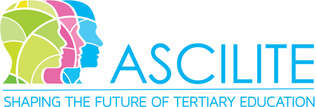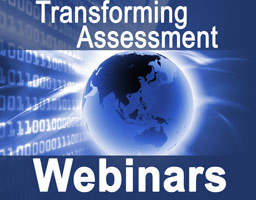2022: Remote proctoring - the European experience (AHE joint session 1)
Session completed! - see the recording.
A joint session with Assessment in Higher Education Network (UK) and Transforming Assessment.
Session chair: Fabio Arico (University of East Anglia, UK)
Presentation 1: Proctoring, a golden buzzer for organising remote assessment?
Presenter: Karen Van Eylen, KU Leuven, Leuven, Belgium
Abstract:
Exams at KU Leuven used to be campus-based only. The COVID-19 pandemic has urged the need for switching to invigilated remote exams, and significantly raised the demand for proctoring software. In line with the KU Leuven strategic goals of ‘future-oriented education’ and ‘going digital, investing in educational technology’, a lot of effort has been put into organising and supporting remote exams. Looking into the possibilities of how proctoring can contribute as a valuable assessment tool in our educational context was therefore given high priority.
Remote proctoring tools provide ways to restrict what actions students can undertake in using their devices, as well as placing surveillance on the environment in which students take an assessment (Dawson, 2020). This resulted in focussing on what could be a sustainable, future-oriented approach for remote exams and what the place of proctoring tools is in this quest. Gaining a lot of insight in the benefits, conclusions had to be made on the limitations of proctoring as well.
To this end, an instrument to support teachers/lecturers (teams) is developed, inspired by insights from literature and other networks (e.g. SURF (2020)). In co-creation with faculty education support staff, translation was made to what quality aspects are at stake in online remote assessment. Thereby identifying how meaningful design choices can be made in terms of assessment. These should not only allow to make quick and good choices in the short term, but also have the courage to invest more in online remote assessment with a sustainable perspective and thus in quality education.
In this session we present insights to KU Leuven's approach to the process of designing more sustainable assessment in online education.
Presentation 2: Remote Proctoring During the Pandemic and Beyond: Insights and Trends from European Institutions
Presenter: Steffen Skovfoged, Founder & Executive Director of UNIwise
Abstract:
When the COVID-19 pandemic hit, higher education institutions were faced with the challenge of either cancelling summative assessments or running them online. Most institutions chose the latter, either opting to change as little as possible and transpose closed-book assessments from pen and paper to digital, or choosing to redesign the assessment so that it took an alternative form. In response to the pandemic and to increase the reliability, credibility and authenticity of testing, UNIwise introduced remote invigilation within WISEflow, our digital assessment platform, through the use of AI and images of participants.
Hundreds of thousands of assessments took place on the platform using our remote proctoring functionality and our data shows that whether a university chose to replicate as far as possible closed-book assessments using our digital platform or to redesign their assessments depended on two factors:
1) The institution’s previous level of digitalisation
2) The level of institutional autonomy – are they governed by strict legislation regarding data privacy, such as in Germany and Belgium, or monitored by professional and/or regulatory bodies?This session will dig into the data to explore national differences in digitisation and experience with digital assessment affected the response to the pandemic at institutions across Europe.
To register for this session please login (or create an account) then click the 'register now' button.
Sessions are hosted by Professor Geoffrey Crisp, DVC Academic, University of Canberra and Dr Mathew Hillier, Macquarie University, Australia.
Please note all sessions are recorded and made public after the event.
Time is displayed below is in *universal coordinated time* -> See your local time.












